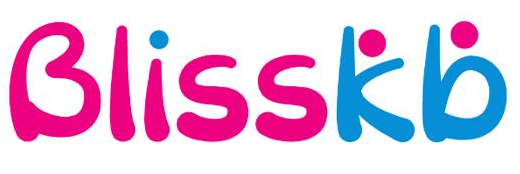
This is your website preview.
Currently it only shows your basic business info. Start adding relevant business details such as description, images and products or services to gain your customers attention by using Boost 360 android app / iOS App / web portal.
All kids get a fever from time to time. Usually, a fever isn’t dangerous or bad for kids. It can even be a good thing because it can help the immune system fight infection. Still, parents might be unsure about how to handle a fever at home and when to call the doctor. Here are some tips. What Is a Fever? In general, a fever means the body’s temperature is 100.4°F (38°C) or higher. Different ways of measuring a temperature — rectal, armpit, ear, forehead, mouth — get a slightly different number, so the number that means a child has a fever is a little different too. What Causes Fevers? Fevers in kids are usually caused by an infection. A fever helps the body by stimulating the immune system to fight the infection. Doctors also think the higher temperature makes it harder for the germs to grow. A few other reasons kids can have a fever: Overdressing: Infants, especially newborns, may get fevers if they're overdressed, wrapped in a blanket, or in a hot environment because they don't regulate their body temperature as well as older kids. But because fevers in newborns can be a sign of a serious infection, even infants who are overdressed must be checked by a doctor if they have a fever. Immunizations: Babies and kids sometimes get a mild fever that lasts about a day after getting vaccinated. A child who is teething might have a slight rise in body temperature, but it's probably not the cause if the temperature is higher than 100°F (37.8°C). When Is a Fever a Sign of Something Serious? In most healthy kids who are acting well, a fever isn’t serious. But a fever can be serious for: Infants younger than 3 months: If an infant younger than 3 months has a rectal temperature of 100.4°F (38°C) or higher, call your doctor or go to the emergency department right away. Kids with some health conditions: If your child has an ongoing health issue, make sure you know if the doctor should be called for fever. A fever is probably not serious if your child is 3 months or older and: is still interested in playing is drinking well is alert and smiling has a normal skin color looks well when their temperature comes down Don't worry too much about a child with a fever who doesn't want to eat. This is common with infections that cause fever. For kids who still drink and urinate (pee) normally, not eating as much as usual is OK. What Are the Signs of a Fever? Kids with a fever might: feel warm act differently (they might be fussy or cranky, or quieter than usual) breathe a little faster or have a faster heart rate than normal have a headache have chills or sweating have red or flushed skin For any of these signs, take your child’s temperature to know if they really have a fever. If your child feels warm or is acting unwell, use a digital thermometer to confirm a fever. Different ways of taking the temperature are more accurate than others at measuring the true body temperature. The best way to take a temperature: for kids 3 years old and younger: a rectal temperature for kids 4 or older who can cooperate: an oral temperature (by mouth) for any age: under the armpit (axillary) and temporal artery (forehead) are easiest but less accurate. Tympanic (in the ear) is OK for kids 6 months and older. It's a fever when a child's temperature is at or above one of these levels: rectal (in the bottom), tympanic (in the ear), or temporal artery (across the forehead): 100.4°F (38°C) oral (in the mouth): 100°F (37.8°C) axillary (under the arm): 99°F (37.2°C) How Can I Help My Child Feel Better? No treatment is needed if a child is still playing and drinking normally and doesn’t have pain. Treating a fever with medicine isn't needed if a child is still playing and drinking normally and doesn’t have pain. Give medicine only when a fever causes a child discomfort or keeps them from drinking. While kids have a fever, keep an eye on them, help them to rest, and keep offering fluids to drink. They need to drink a little extra to make up for the fluids they lose from sweating.
We Provide Best Medical Service
Online appointment booking is not available right now.
Appointment Confirmed
Your appointment ID is
| Doctor Name: | |
| Date & Time: | |
| Contact: | +918048030654 |
| Address: | Flat No 2/203, Amogh CHS , Lalbaug , Ganesh Gali Mumbai |
| Appointment fee: | |
| Payment mode: | |
| Join video call at: |
Thanks for choosing us.Your appointment details has been shared on your mobile number as well. Please arrive atleast 10 minutes ahead of the scheduled time.
Success
